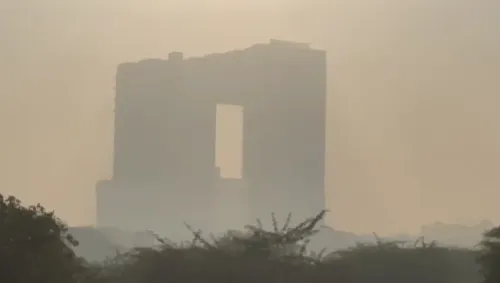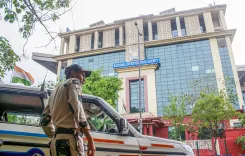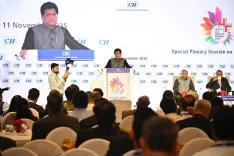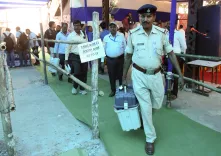Did the Delhi HC Deny Bail to Ex-AAP Councillor in Ankit Sharma Murder Case?
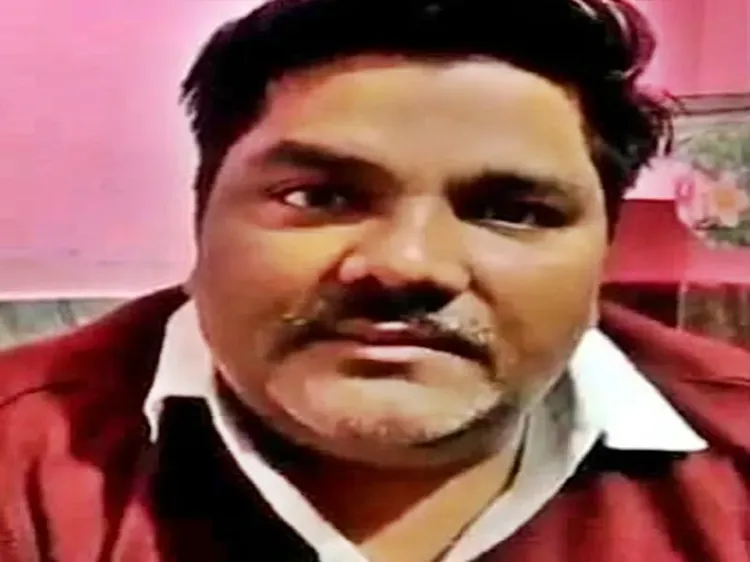
Synopsis
Key Takeaways
- Delhi HC rejects bail for Tahir Hussain
- Charges include murder and rioting
- Case linked to 2020 North-East Delhi riots
- Implications for communal violence accountability
- Trial proceedings are under scrutiny
New Delhi, Sep 25 (NationPress) The Delhi High Court has rejected a bail petition submitted by former Aam Aadmi Party (AAP) councillor Tahir Hussain, who is embroiled in the murder case of Intelligence Bureau officer Ankit Sharma linked to the 2020 North-East Delhi riots.
A single-judge Bench presided by Justice Neena Bansal Krishna turned down Hussain's plea. In December of the previous year, a Bench led by Justice Anoop Kumar Mendiratta had requested a response from the Delhi Police regarding Hussain's challenge to the trial court's prior denial of his bail request.
In March 2023, a Delhi court formally charged Tahir Hussain with murder in relation to this case.
Additional Sessions Judge Pulastya Pramachala at the Karkardooma Courts held that Hussain and ten others were to face trial for various offences, including Sections 147 (Rioting), 148 (Rioting, armed with a deadly weapon), 153A (Promoting enmity between groups based on religion or race), and 302 (Murder) in conjunction with 120B (Criminal Conspiracy) under the Indian Penal Code (IPC).
Hussain also faces charges under Sections 505, 109, and 114 of the IPC. The trial court indicated that Hussain incited a mob to murder Hindus, urging them to "not spare them".
On February 26, 2020, an FIR was filed by Sharma's father, Ravinder Kumar, who alleged that protests related to the anti-CAA and pro-CAA took place for several days at Chand Bagh Pulia on Main Karawal Nagar Road.
He reported, "On February 25, 2020, my son left to purchase household items but did not return for an extended period."
Locals later informed Kumar that a boy had been thrown into the Khajuri Khas nala from the Chand Bagh Masjid.
Eventually, Sharma's body was retrieved from the drain, with Kumar alleging that Hussain and his associates were responsible for the murder.
Hussain is seeking bail based on the precedent set by co-accused Shoaib Alam, Gulfam, and Javed, who were previously granted bail due to delays in the trial's commencement.



